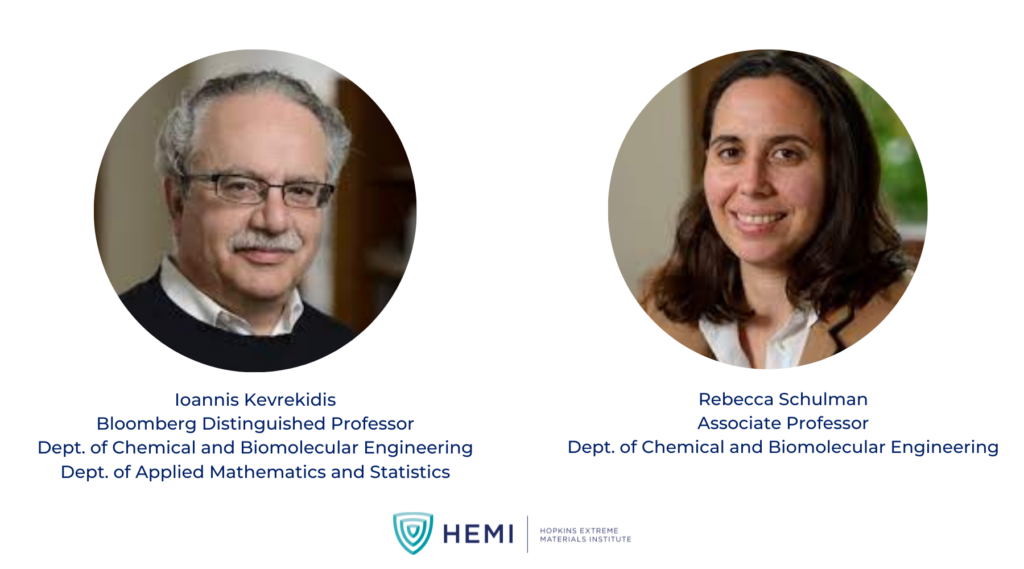Nov 5, 2021 | No Comments | By Sarah Preis
Prof. Ioannis Kevrekidis and Prof. Rebecca Schulman have been appointed as two of the newest HEMI Fellows.
Kevrekidis is currently a Bloomberg Distinguished Professor in the departments of Chemical and Biomolecular Engineering and Applied Mathematics and Statistics and in the School of Medicine’s Department of Urology.
His research interests have always centered around the dynamic behavior of physical, chemical, and biological processes; the types of instabilities they exhibit; the patterns they form; and their computational study.
He pioneered the approach known as “equation-free computation” and is a member of the National Academy of Engineering. His work has been transforming the way scientists and engineers perform computer-assisted modeling of complex systems – both through new algorithmic techniques, and through targeted applications such as accelerated molecular dynamics, or nonlinear system identification.
Schulman is an associate professor in the Department of Chemical and Biomolecular Engineering, is an expert in developing programmable, active devices that self-assemble from DNA. Her group focuses on molecular electronic devices and tools for biological and biophysical research.
She and her research group seek to understand how to build complex chemical systems for autonomous self-assembly, pattern formation, and detection and response. Additionally, she has developed new means of building and repairing molecular circuits using a technique called point-to-point assembly and has developed new classes of soft materials called “hydrogels” that can change form in response to specific biomolecular sequences (or codes), paving the way for new classes of biomedical devices, robots, and materials.
She has received an NSF CAREER Award, DOE Early Career Award, Turing Scholar Award, DARPA Young Faculty Award, and a DARPA Director’s fellowship. Her work received best at conference awards at the Foundations of Nanoscience Conference (2017) and the DNA Computing and Molecular Programming (2014).




